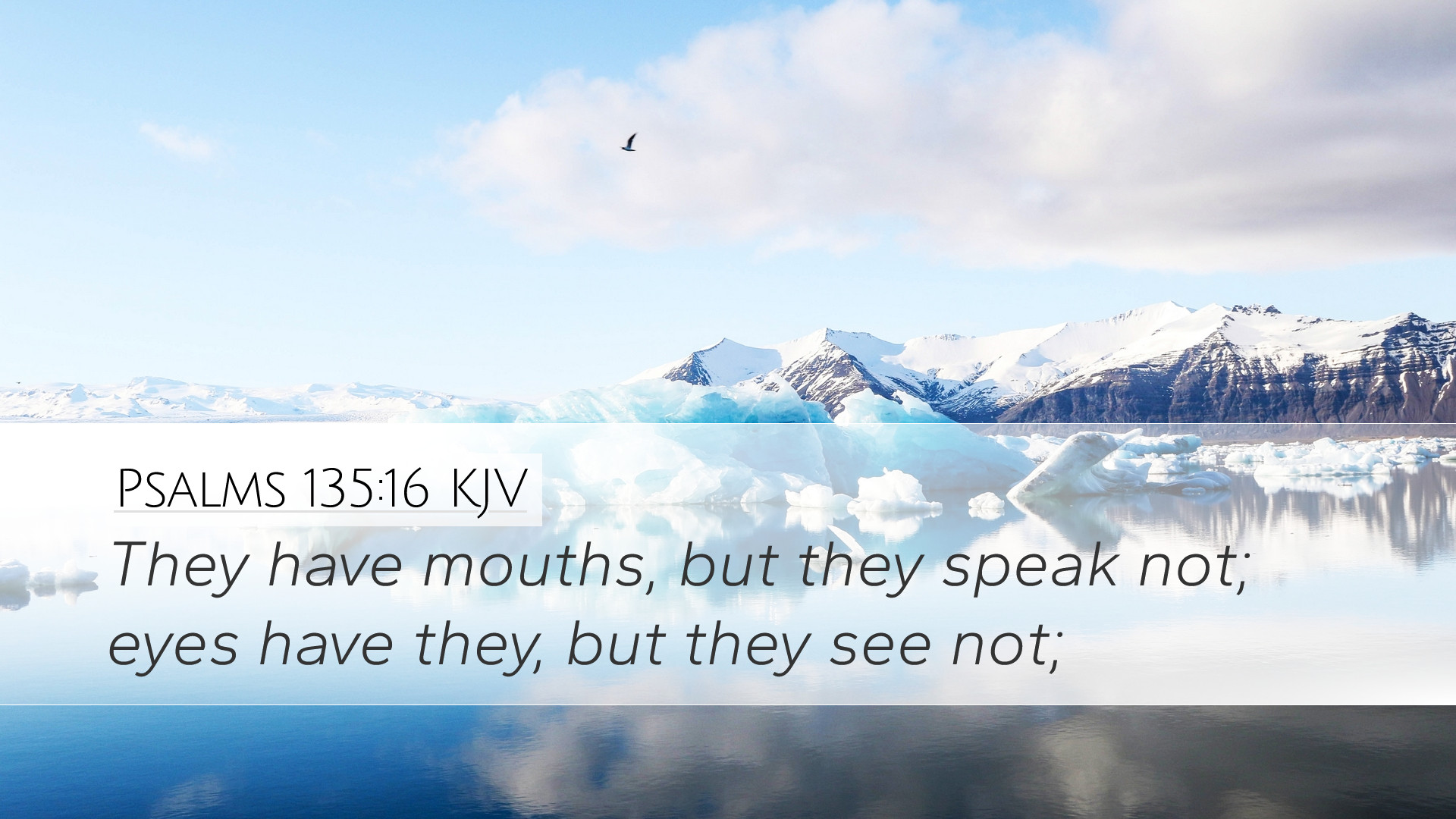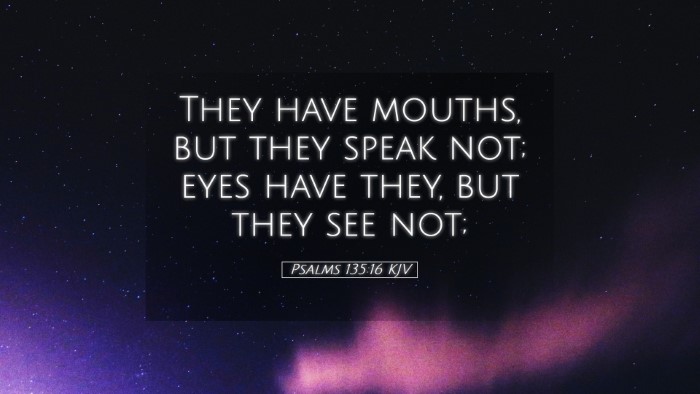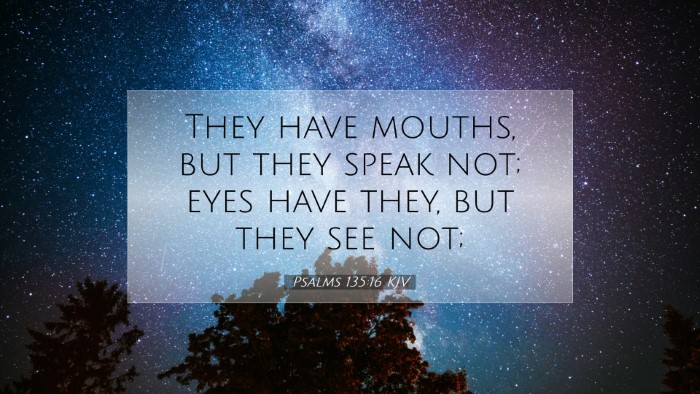Commentary on Psalms 135:16
Verse Context: Psalms 135:16 states: "They have mouths, but they speak not; eyes have they, but they see not." This verse is part of a larger passage that contrasts the living God with idols made by human hands.
Introduction
The passage highlighted in Psalms 135:16 serves as a profound reminder of the futility of idolatry. Through the insights from various public domain commentaries, we will explore the implications of this verse within the broader framework of Scripture, particularly focusing on the nature of God versus the nature of idols. It speaks to the heart of both ancient and modern believers, offering theological and practical insights.
The Nature of Idols
The verse explicitly points out the limitations of idols: they are mute, blind, and lifeless. Matthew Henry notes that this verse emphasizes the absurdity of worshipping lifeless objects, which are incapable of communication or action.
- Idols have mouths, but they do not speak: This highlights their inability to provide guidance or revelation.
- Idols have eyes, but they do not see: They cannot perceive or respond to the needs of their worshippers.
- Idols have ears, but they cannot hear: They cannot receive prayers or pleas for help, rendering their worship utterly pointless.
Theological Implications
Adam Clarke points out that the impotence of idols serves as a stark reminder of the sovereignty and omnipotence of God. In contrast to the lifeless idols, the living God actively engages with His creation. This theological principle reinforces the belief that only God is worthy of worship and capable of hearing and responding to His people.
Albert Barnes elaborates that the futility of idols illustrates the emptiness of any form of worship that does not center on the true God. The ramifications of idolatry extend beyond mere disbelief; they affect the moral and spiritual fabric of society, leading individuals away from true righteousness.
Historical Context
This psalm likely reflects the post-exilic context of Israel, where the return from Babylonian captivity brought about a renewed emphasis on proper worship of Yahweh. The memories of idol worship during captivity prioritized the necessity of acknowledging the true God. Matthew Henry underscores that “the psalmist exhibits the folly of idolatry as a means to steer the hearts of the people back to God.”
Call to Worship
The latter sections of Psalm 135 serve as a call to praise the Lord for His greatness and power. It serves as an affirmation of faith that reassures believers in God’s personal involvement in their lives. The juxtaposition of the living God against lifeless idols motivates the psalmist to call upon the faithful to worship God wholeheartedly.
Application for Believers
For pastors, theologians, and students, the insights from Psalms 135:16 challenge contemporary believers to evaluate what they place their trust in today. Idolatry is not merely confined to wooden or stone figures; it spans various aspects of modern life.
- What are the modern idols? Materialism, status, and even self-aspirations can become objects of worship.
- The necessity of discernment: It is essential for believers to discern between the living God and the idols tempting for their allegiance.
- The call to genuine worship: True worship arises from understanding God's character, recognizing His voice, and experiencing His presence in our lives.
Conclusion
Psalms 135:16 serves as a powerful declaration of the impotence of idols against the backdrop of a powerful and living God. Drawing from the collective wisdom of Matthew Henry, Albert Barnes, and Adam Clarke, we uphold the call to discernment in worship and to constantly redirect our hearts to the one true God. Such theological reflections and applications encourage sincere faith practices among believers, prompting them to deepen their acknowledgment of God’s divine nature and power.


